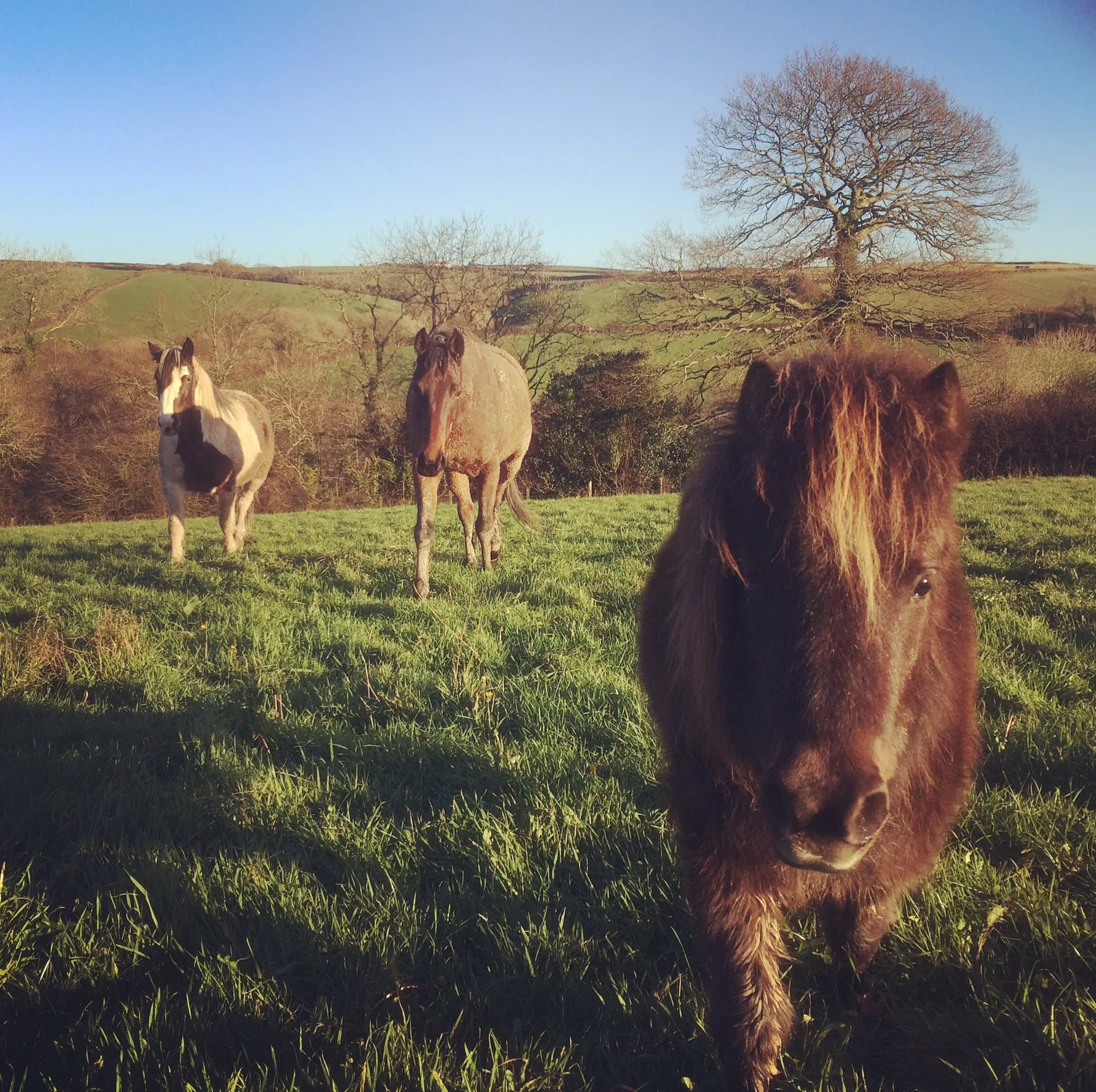I often have the pleasure of working with feral ponies, they are incredibly brave souls who have big fears to overcome. Depending how long they have been "feral" affects how they can adjust to the presence of people. I have noted that if they have positive contact with people early in their life they can find it easier to adapt. Those that manage feral pony herds should be aware of how foals early experiences shape their future behaviours. Their mothers reaction to situations has a large impact on a foals reaction. If in early life the foals could be exposed to people in a positive and calm way then it would make handling them in later life easier and safer, giving the pony a higher chance of having a domestic home.
The initial handling of feral ponies is something that should be done with time, care and knowledge. These ponies are not for the inexperienced as fear can make them unintentionally very dangerous.
The hope is for the pony to become happy to be touched and handled by people. This takes time, there are no miracle methods to reduce fears. The ideal scenario is to give the pony the time and space that is required to habituat to people. It is incredibly easy to accidentally "flood" feral ponies. Flooding is a form of behaviour modification that should be avoided with animals, flooding is a technique used with phobias, where the subject is exposed to what they fear with no means of avoiding it. Humans are taught coping strategies and consent to this type of treatment but horses are not able to give consent and are often not taught adequate coping strategies. Flooding can go very wrong, causing an animal to be even more frightened of their phobia than before or to shut down and enter a state of learned helplessness. I believe it is unethical as it causes huge amounts of unrelenting stress and should be avoided. If you sit in a stable with a feral pony that is frightened of you, you are definitly at risk of flooding it. The pony is fearful, stressed, confined in an unfamiliar environment, often alone, with no means of escape from the terrifying human in with it. This is why it can appear that they take an extended amount of time to get used to people when in fact they are likely getting even more sensitized to people.
So how can you help feral ponies adapt to domestic life ? Should they be domesticated at all or is that just too stressful for them?
There are several behaviour modification techniques that can be used to ethically help feral ponies adjust to domestication. Every feral pony is different and so needs a specific plan but when I work with them I firstly try and ensure they have had time to habituate to people. By giving the ponies time in a herd environment, being fed hay daily by people creates a positive association, a good start. If the ponies welfare is such that it can't manage that time in a herd, then a companion or 2 in a turnout area or barn will serve the same purpose and allow the animal time to recooperate and recover.
The first touch is always a huge moment for both me and the feral pony. For the pony to choose to reach out and investigate me is magic every time.
I often use positive reinforcement training with feral ponies, but care must be taken when using it to remember what the most rewarding thing is and also to ensure you are not creating conflict. During the initial stages the most rewarding thing for a feral pony is space, food on a target, with you at a distance, can then be added. Food must be used with care, pony nuts are like candy to these ponies and they will often go way out of their comfort zone to get them, it may seem like your making massive strides but be aware of the conflicting feelings this can cause which can lead to guarding behaviours or fear based aggression. This is why it is vital that food plays a small part, to encourage them to challenge their fears, reward their achievements and create positive associations with people and activities. But it is vitally important to make sure the ponies are also being systematically desensitized to touch.
Read More













